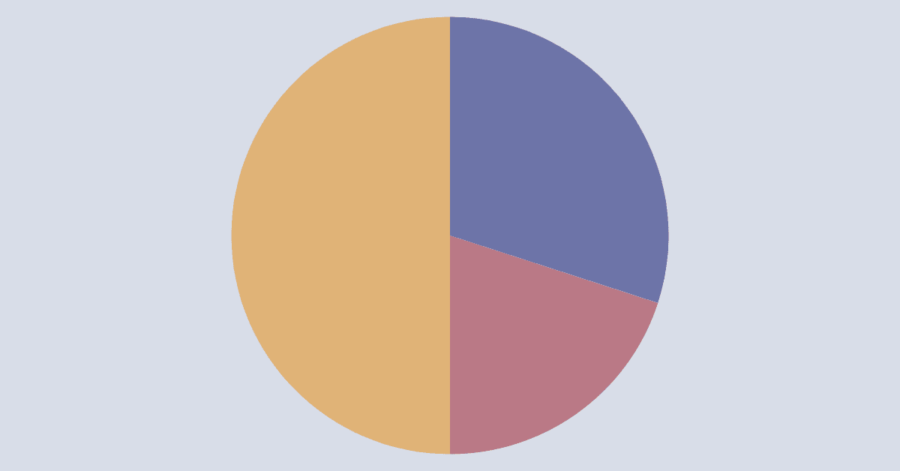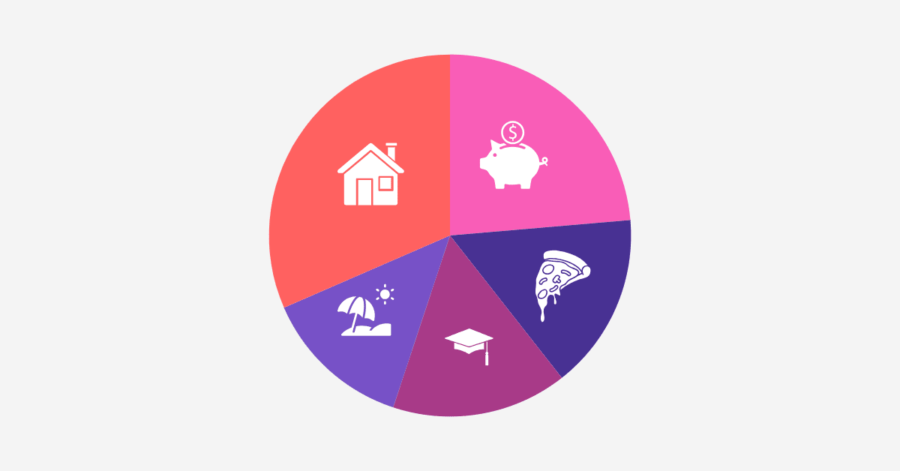Learning how to budget with irregular income is more important than ever. Budgeting is becoming very challenging with an irregular income. Around the world, more than 30% of people earn from inconsistent sources, such as freelancing, side gigs, or entrepreneurial ventures. Following the rise of gig work, income opportunities have expanded and become more challenging than traditional jobs.
As more people leave traditional paycheck jobs, but struggling to manage money without a steady income. So, is it really possible to budget on an irrregular income? The answer is yes, but using the right strategy.
What You’ll Learn
ToggleSteps to Budget with Irregular Income
Creating a budget involves several steps, but it can seem complicated when your income is irregular. Here are some effective steps to help you start budgeting even when your income fluctuates:
1. Understand Income Patterns
A steady income follows a fixed pattern – for example, if earnings are $10,000 per month, then every month, credit the same amount consistently, right?
But with irregular income, the patterns behave like a zigzag, sometimes going up or down significantly.
First of all, you need to track your income using an average of 6 to 12 months.
When you get the average monthly amount, figure out which months’ income is lower or higher than the average, and take note of those months.
For example, Clz has been doing freelancing and his six-month earnings are $6,000, $4,000, $2,000, $4,000, $9,000, $5,000.
Read Also: How To Start A Budget From Scratch
Clz calculates the average of all six months’ earnings and gets $5,000. He note down the lower and higher earning months.
This helps him understand when to spend less during low-income months and save more during high-income months to maintain financial stability.
2. Identify Essential Expenses
Finding out essential expenses is a hard task, because confusing about which ones are essential and non-essential.
Here is the list of necessary monthly expenses:
- Rent/mortgage
- Utilities/bills
- Groceries
- Insurance
- Transportation
- Medicines
There are common essential expenses; in your case, they may be more or different, so add them.
After that, find out your minimum monthly needs. I mean, how much do you spend monthly without sacrificing?
3. Prioritize Savings
With irregular income, saving is hard. But it will help during low-earning months or any emergency.
In high-earning months do save in any form, like as an emergency fund or high-yield savings account.
4. Use a Budget
Knowing income, expenses, and savings goals. Next, it’s turn to choose the right budget.
There are many budgeting approaches available for irregular income, but the best is the Zero-Based Budgeting (ZBB).
What is Zero-Based Budgeting?
Zero-Based Budgeting (ZBB) means you start your budget from zero every month, with nothing left for next month.
For effective working with this budget, sum up this month’s income after taxes. After that, assign every penny to expenses, and don’t forget how much you save this month.
In the end, you have nothing left. Holla! That’s great, you settle every penny.
5. Adjust Monthly
With irregular income, you are not stuck to a budget. Every month, you need to adjust the budget.
Updating the budget each month based on actual income will help you stay on track.
Many people complain that a budget will not help.
Why? Because everything is not permanent, things will change every time, and they don’t update or review their budget. So, it is very easy to blame.

Common Mistakes to Avoid
Making mistakes during budgeting with irregular income is too common, but ignoring them may create stress. Here are the common budgeting mistakes to avoid:
1. Overestimating Income
This mistake is most ignored due to irregular income, as every month it will change. And we create a budget based on the average income
To fix this, try using the exact monthly income, not the average income.
2. Don’t Plan the Budget
This mistake only happens with an unstable income source. So, avoid this using your current income after tax.
3. Failing to Save Money
The biggest challenge is when your income goes higher than in other months.
Read Also: How To Save Money Fast On A Low Income
You forgot to save money because of spending on non-essential expenses.
If possible, save money in an emergency fund.
4. Not Tracking Expenses
Spending money is ok, but forgetting to track expenses leads to breaking the budget.
To avoid this mistake, try to track every expense, even if it is too small.
5. Inconsistent Budgeting Habits
Irregular income requires more discipline. Without a steady paycheck, it’s easy to overspend during high-income months. Also, face struggles to manage money during low-income months.
To fix this, prioritize essential expenses and savings.
Is It Possible to Budget with Irregular Income?
Yes, you can budget. It doesn’t matter whether the income source is steady or irregular.
The important things that really matter are the right mindset.
Many people believe that they need a steady income to manage their finances.
This is because steady income is fixed with no risk of losing it, and also provides a sense of financial security.
But budgeting with unsteady income is not as complicated as it may seem. It has become easy with the help of the right budgeting steps.
Conclusion
Budgeting with irregular income is entirely possible when the right steps are taken. But ignoring mistakes creates problems. Look, an inconsistent income doesn’t have to be a burden. It simply requires more dedicated planning.
With the right strategies in place, such as prioritizing essential expenses and managing unsteady income becomes much more manageable.
One of the most effective approaches is the zero-based budgeting method, which helps to settle every penny at the month end.
What budgeting strategy has helped you manage an irregular income?
Share your thoughts in the comments.
Your experience might help someone else find financial stability.






